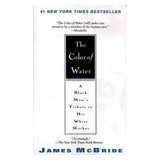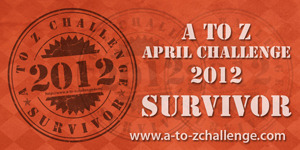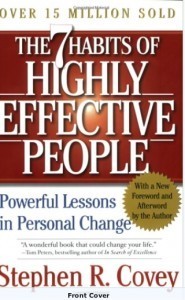Angela Joseph's Blog, page 30
July 20, 2012
Guess What I Saw/Heard This Week
I am taking a break away from blogging about my book to put in my two cents’ worth on the latest senseless act of carnage to take place in the US. By now you must have all heard that 12 people were killed and around 50 treated at local hospitals in Colorado. A young sportscaster, Jessica Ghawi, better known as Jessica Redfield in the sporting world, was among the fatalities. A young woman with a promising career cut down in the prime of her life. My prayers are with everyone associated with this tragedy.
It was April 20, 1999 when two high school students killed 12 of their school mates and one teacher in another senseless massacre. Today, history repeats itself, not in a school, but in a theater. When will they ever learn? What could motivate a young Phd student to do something like this? Was it stress? We may or may never know the answers, but tragedies such as this one ought to shake us to our core and remind us how vulnerable we are.
Orangeberry Summer Splash
This is a mini book tour marathon organized by Pandora Pikolos of Orangeberry Book Tours. The marathon features blog hosting and posts by authors of 100 books. My book Women For All Seasons will be among the 100 books featured. There will be links to author interviews and other posts, plus Twitter and Facebook blasts. The marathon runs (pun intended) from August 1 – August 31. I will post other updates as the time draws closer. This is a good opportunity to learn more about my book and a lot of other wonderful books out there.
Stephen Covey’s passing
The author of 7 Habits of Highly Effective People passed away this week at the age of 79. This book has influenced a lot of people, including me, when I studied it in college some years ago. One piece of advice Covey gives in his book is, “To live a more balanced existence, you have to recognize that not doing everything that comes along is okay. There’s no need to overextend yourself. All it takes is realizing that it’s all right to say no when necessary and then focus on your highest priorities.” I think this book is worth a reread.
Leave a comment and let me know your thoughts on any of the items above.
July 16, 2012
Blogging About My Book : Metaphors
 This week as promised, I’m bringing you the first blog post about my book Coming Out of Egypt. My protagonist, Cicely, is an attractive Christian young woman who has a lot of skeletons in her closet, which she has managed to keep hidden. Cicely thinks her life is well ordered, but when she meets the handsome detective, David, she instinctively knows that the carefully-woven threads of her life are about to become undone. Which they do, despite Cicely’s best efforts to keep them intact.
This week as promised, I’m bringing you the first blog post about my book Coming Out of Egypt. My protagonist, Cicely, is an attractive Christian young woman who has a lot of skeletons in her closet, which she has managed to keep hidden. Cicely thinks her life is well ordered, but when she meets the handsome detective, David, she instinctively knows that the carefully-woven threads of her life are about to become undone. Which they do, despite Cicely’s best efforts to keep them intact.
In the story, I make use of the extended metaphor, meaning that the metaphor appears throughout the story. In fact, the title Coming Out of Egypt is itself a metaphor for the tortuous journey of the major characters out of their separate places of bondage. However, Egypt is more than that. It is an actual place in the story where Cicely first meets one of her pupils whose life is similar to what Cicely once experienced. And even though Cicely literally leaves Egypt, her path and the girl’s converge once more in a startling and unexpected way that disrupts the harmony of Cicely’s life. She is still stuck in Egypt.
But why use metaphors? I believe metaphors are an excellent way to:
1. Enrich the language by providing imagery which may not be as vivid without them . For example, in my book I refer to Cicely’s Egypt closet, which is not a real closet, but a storehouse of memories relating to her troubled past. The title Coming Out of Egypt is based on the story of the Exodus of the children of Israel out of their bondage in Egypt. It is a story I have loved ever since I was a child, and being a Christian, I’m still blown away by the way God delivered His people from the heavy hand of Pharaoh, the emperor of Egypt. This is the main theme that runs throughout the book.
2. Leave room for interpretation. Readers can explore which of the characters made a transition out of Egypt, i.e. which character(s) showed the most improvement by the end of the story, and which ones did not make it.
3. Express thoughts, feelings, experiences etc. When Cicely finally lets go of her inhibitions and allows herself to fall in love with David, she sees God parting the Red Sea so she can walk to freedom. Later, when her fears become a reality, she thinks that Pharaoh and his armies have won.
4. Prepare the reader for what is to come. In some parts of the story, I use metaphors as a foreshadowing. When Cicely suspects that David may find out about her past, she hears the pounding of Pharaoh’s armies drawing closer.
Metaphors, when correctly used, can add depth and meaning to your story, but according to the experts, writers should be careful not to use metaphors too extensively so that your work sounds like a huge cliché. Neither should you use metaphors employed by other writers, but use your own imagination to create metaphors that will flow seamlessly throughout your work. If you have used metaphors, or have an interest in them, please leave a comment and tell us about it.
June 29, 2012
Guess What I Saw/Read This Week
 Last week I mentioned that this week will be audiobooks week, and as promised, I went to the library and picked up a few audiobooks. I was amazed at the wide variety the small library close to where I live carries. There were fiction books of every genre as well as non-fiction. I picked up three titles, one of which is The Color Of Water written by James Mc Bride and narrated by Andre Braugher and Lainie Kazan.
Last week I mentioned that this week will be audiobooks week, and as promised, I went to the library and picked up a few audiobooks. I was amazed at the wide variety the small library close to where I live carries. There were fiction books of every genre as well as non-fiction. I picked up three titles, one of which is The Color Of Water written by James Mc Bride and narrated by Andre Braugher and Lainie Kazan.
Storytelling at its best
The story gripped me instantly. Maybe it’s the deep timbre and skilful inflection of the narrator’s voice combined with the story itself or the writer’s style. Maybe a combination of all three. But whatever it is, I’m having difficulty turning off my car engine and stopping the tape when I get to my house. The story, a black son’s tribute to his white mother, is told in a style which modern-day writers will call telly, but to me it’s storytelling at its finest. It conjures up memories of me sitting on the floor at my mother’s feet while she rocked in her rocking chair and told me a story. Mc Bride’s style reminds me a lot of Frank Mc Court, another of my favorite authors. It’s funny, yet poignant, hard-hitting, yet subtle, informative but by no means boring.
As I mentioned before, I’d never listened to an audiobook before. I thought it would be a struggle to maintain my interest, but so far it hasn’t been this way. It has made my ride to and from work much more enjoyable and all too short. Just as I would with a good print book, I find this audiobook hard to put down.
The ampersand
Did you know there were once twenty-seven letters in the English alphabet? The letter that is now extinct is the ampersand – & - which was a contraction of the letters e and t, which in Latin meant and. In English, the word and was used as the twenty-seventh letter of the alphabet, but when schoolchildren recited the alphabet, they would say “XYZ and per se and,” since it wouldn’t make sense to say “XYZ and.” Per se means by itself. In time the words were pronounced together and sounded like ampersand. By the late 1800s, the word had come to mean, “rear end, posterior, or hindquarters.” In case you didn’t know, APA style requires the ampersand to be used when citing sources in text such as (Harry & Smith 2008). This is different from MLA style which calls for the and to be spelled out. This is also new to me; et cetera, meaning and so forth, can be abbreviated &c.
Heat wave
Most of the country is expected to be in to 100s this weekend. We are used to that in the summer here in Florida, but the Midwest? How hot is it where you are?
______________________________________________________________________________________________________________________
Big savings at Office Max
Summer is always a good time to stock up on office supplies for the rest of the year. Why? With the heat wave out there, you may want to stay in the cool indoors and get some writing done. Another good reason is to take advantage of the special savings at Office Max. Check them out here:
Ink & toner –7/1/12 – 7/7/12
http://click.emailcomm-google.com/?ju...
Hurry Save 20% — 7/112 – 7/2/12
http://click.emailcomm-google.com/?ju...
June 23, 2012
Guess What I Heard/Saw This Week
A comment on my blog post How To Get Your Creative Juices Flowing said one way is to read a book that is so poorly written, you throw it aside and say, “I can write better than that.” I’d never thought of that one before, but when you really consider it, it makes sense. Read something that is badly written, then sit down and craft your own masterpiece.
Books published in serial form
And another comment from one of my friends on my post, Should You Blog Your Book. She reminded me that some famous writers, including Charles Dickens, first published their books in serial form, which is not the same as blogging, but it’s published in segments. So, I decided to look up books first published in serial form, and it turned out there are tons of them. Among the classics are Great Expectations (Charles Dickens), Little Lord Fauntleroy (Frances Hudson Burnett), The Adventures of Pinocchio (Carlo Collodi), David Copperfield (Charles Dickens), Far From The Madding Crowd (Thomas Hardy) and The Count of Monte Cristo (Alexandre Dumas), just to name a few.
Audiobook week
Just last week I told a friend I need to get some audiobooks to listen to on my way to work, because I find I don’t have enough time to read. Lo and behold, next week June 25 – June 29 happens to be audiobook week. I came across Devourer of Books, a blogsite that will be having a series of posts on audiobooks and will be giving some away next week. If you are interested, here’s the link: http://www.devourerofbooks.com/2012/0...
Raining ducks
And now for a little bit of quirk. Did you know that ducks lay their eggs in trees? A female motorist in London said she was driving when she saw four newly-born birds fall like rain out of a tree. She assisted another woman reunite the babies with their mom who was waiting in a nearby pond. Nature expert, Tony Drakeford, said that ducks lay their eggs in trees and when they hatch, the ducklings fall to the ground. He explained the reason they are able to survive very high falls is because of their light skeletons and feathers. There are lots of ducks where I live, so from now on I’m going to be looking up whenever I walk under a tree!
June 16, 2012
Guess What I Saw – A Dream Come True
 I couldn’t resist. I had a few quirky things lined up for my weekly post, but after watching Nik Wallenda walk a tightrope across the Niagara and into the pages of history, I decided to shelve the items I had compiled to write about something, someone, far more entertaining and far more inspiring. As I – and the rest of the world – watched Nik take step after death-defying step on a wet, unsteady tightrope from the US to Canada, I saw more than just a man who set out to follow his dreams. I also saw a man who
I couldn’t resist. I had a few quirky things lined up for my weekly post, but after watching Nik Wallenda walk a tightrope across the Niagara and into the pages of history, I decided to shelve the items I had compiled to write about something, someone, far more entertaining and far more inspiring. As I – and the rest of the world – watched Nik take step after death-defying step on a wet, unsteady tightrope from the US to Canada, I saw more than just a man who set out to follow his dreams. I also saw a man who
1. Honors his family legacy so much that he decides to follow in their footsteps. Nik Wallenda comes from a long line of death-defying, daredevil, entertaining Wallendas dating back to the 1700s. Most of them defied death to entertain and inspire others. Only three of them didn’t make it, including Nik’s great-grandfather who fell to his death in 1978.
2. Has confidence in God and in himself. While I held my breath and prayed many times during the walk, Nik seemed calm and confident, although we could hear him praying and thanking God during the most challenging times. Blinding mist, wrap-around winds and rushing waters could have easily caused him to lose his focus and his balance. At one point, when his father asked him how he was doing, Nik said, “I feel my hands getting numb, my body feels weak.” But he kept his eyes on the prize.
3. Perseveres despite the odds. Nik said it took him twenty years to get to this moment of success. For two of those years he sought permission from US and Canadian government agencies, who all rejected the idea. Sounds familiar? But Nik was not about to give up, and he reaped the reward.
4. Has the support of his family. Nik seemed so small and alone on that wire suspended 200 feet above the cascading, pounding waters of the Falls, but he knew that on the other side his wife, children and his dad were eagerly awaiting his safe return. His father even spoke to him during the walk.
5. Celebrates his victory. Nik is a born entertainer. When he dropped to his knees and blew a kiss to the crowd just a few feet from the tower, I thought, here’s a man who knows how to celebrate. We’ve seen athletes and entertainers cry after a big event, but not Nik. He celebrates with joy. One of the reporters said that Nik usually calls his wife from his cell phone, but he didn’t do it this time.
As Nik handed his passport to Canadian immigration officials, he was asked what was the purpose of his walk. He replied, “To inspire people around the world.” He inspired me, and I’m sure, a lot of people. As writers, we can emulate Nik’s example. There will always be challenges, but if we trust God, have the support of family and friends, and do not give up, we too will one day be able to celebrate our victory.
June 11, 2012
Should You Blog Your Book Part II
Last week I posted the beginning of an article on the above topic. In the ending I give reasons why you should be cautious about blogging your book and what may be the safest ways to go about it.
My take on the whole thing? Proceed with caution. If you are writing a great humorous non-fiction book on, say, why teenager’s brains are programmed to make them text while driving, then you may attract readers and increase your blog traffic. But will they buy the book after they have read it? Another reason I may be reluctant to blog my book is because of copyright issues. If your book sounds like it has some viability, what’s to prevent someone from packagi ng it, giving it another title and selling it on Kindle?
Yet another reason I think blog posts may not translate into a good blovel is the matter of pacing. If you write mini-scenes which leave your reader panting for more after each one, your reader may become tired after a while and wish to get off the roller coaster. In order to pace your novel well, you are going to have moments when events rise to a crescendo, then fall in much the same way an orchestra presents a musical item. It’s this rhythm, not the constant cliffhangers of the blog posts, that makes the reader eagerly anticipate what is to follow.
However, I do think authors can build a platform about their novel before it is published, not by blogging their book, but by blogging about it (which I plan to do). You can write a blurb about the story, give some background about the setting – if it’s an interesting one – talk about how you came up with the idea for the book. Without giving away the story, you can post, each day, or each week, something about your progress. How many pages did you write, what did you focus on, what challenges did you have? Also, don’t be afraid to ask your readers to help you unravel those challenges. If you do, your readers will feel they had a part in writing the book and will be impatient to see it in print. Hey, what am I waiting for?
Any more ideas about blogging your book? Leave a comment below.
June 8, 2012
Guess what I Heard/Saw This Week
 Today I start a new column with the above title, which I hope will become a weekly feature. I’ll be bringing you information that is quirky, artsy, writerly or just plain newsy. I invite you to leave a comment and add any news of your own that you think may be of value to anyone, not just writers.
Today I start a new column with the above title, which I hope will become a weekly feature. I’ll be bringing you information that is quirky, artsy, writerly or just plain newsy. I invite you to leave a comment and add any news of your own that you think may be of value to anyone, not just writers.
I heard this one on a Christian radio station:
Car dealer in Palm Beach, Florida to build a 341 foot high flagpole to honor 911 victims and responders. The flagpole is going to be huge, as you would imagine, to withstand hurricane-force winds and, if approved by the city, will cost only $800.000. Can’t wait to see it.
Potty Mouth Doll
Saw this on the evening news. A mom bought this doll for her daughter and is very upset over its use of what sounds like profanity. Mom says she wants the doll removed from the shelves. Toys R Us says the words aren’t cuss words and they refuse to remove the doll.
Compromised Passwords
If you are on LinkedIn your password may be one of the 6. 5 million stolen and posted on a hacker site. LinkedIn says, “To the best of our knowledge, no email logins associated with the passwords have been published, nor have we received any verified reports of unauthorized access to any member’s account as a result of this event.” However, some passwords were decoded and LinkedIn has locked those accounts and notified the account holders. Are we safe yet? You may read the post here: http://blog.linkedin.com/2012/06/07/t...
BEA 2012 attendance up
Attendance at the Book Expo America is said to be up 5% to 14,057 for retailers, librarians and booksellers and 1% overall to 22,365. But that’s not all that’s up, according to Forbes. E-book publishers were also exhibiting alongside print and other traditional publishers. Names like OverDrive, Copia and Chafie Press were present. To learn more about these companies, read the post here: http://www.forbes.com/sites/johnfarre...
World’s tallest man
This from the Huff post: 8 foot 3 inches Sultan Kosen of Turkey has stopped growing at the age of twenty-nine. Kosen, who suffers from acromegaly, has had to use crutches to walk, but four years ago he began a treatment at the University of Virginia which has caused him to stop growing. Kosen has held the Guinness World Record title since 2010 and actually grew a couple inches since then.
Anything quirky or interesting going on in your neck of the woods? Why not leave a comment and let me know? I may feature it next week.
June 3, 2012
Should You Blog Your Book?

We live in an age where new words keep popping up faster than microwave popped corn. A lot of this has to do with the internet. Words such as blog, webinar, branding, social media were either not known, little used or meant something entirely different before the turn of the century. Now I’ve come across another one: blovel. This means a blog that has been turned into a novel or vice versa, I’m not sure which. However, some people think that writing a blovel can help an author build a platform, leading to a book deal with a major publisher. After all, that’s the reason many of us write, isn’t it?
One advocate of book blogging says it’s very easy to turn your blog into a book. Simply write a short blog post every day starting from the beginning of your book and at the end of a year you should have a book, er, blook. I’m sure you can figure what that is. While she admits that blogging your book lends itself best to non-fiction, she thinks it is also possible to turn out a good blovel. She advises that you
a) plan your story arc well,
b) divide your chapter into mini-scenes,
c)decide how you will weave your posts into a manuscript that flows.
These all sound plausible, however Jane Friedman, professor, media professional and former publisher of Writer’s Digest pleads, “Please don’t blog your book.” While Jane agrees that some blogs may make for excellent books, these are the ones that fall in the information category or are memoirs, like Julia and Julia. Jane’s reasons for not blogging your book are also straightforward and plausible. They are:
a) Blog writing is not like book writing. Think SEO, keyword etc.
b) Blogs can make for very bad books – unless it’s an e-book or an illustrated book.
c)If a book sounds like a series of blog posts, she considers it a failure.
In some of the forums I visited on the subject, one author brought up the very important of original work. Publishers tend to shy away from anything that’s considered already published, and if it appeared on your blog then it qualifies as published work. Another person said he has been blogging scenes from his book, but he has yet to acquire a readership.
I’ll continue this discussion in another post. Meanwhile, drop me a line and let me know if you think blogging your book is a good idea, or if you have done it what kind of results have you had.
May 9, 2012
Reflections On The A – Z Blog Challenge
 The A – Z blog challenge taught me one thing about myself: I can do all things through Christ who strengthens me. When I signed up for the challenge, I didn’t seriously think I could do it. I thought I might begin and drop out half-way or even a quarter way through. After all, I’m not a daily blogger, and don’t intend to be. But as I began working my way through the letters, I found myself coming up with ideas for my writing theme that I’d never thought of before. I was amazed that I could find so many different subtopics on writing.
The A – Z blog challenge taught me one thing about myself: I can do all things through Christ who strengthens me. When I signed up for the challenge, I didn’t seriously think I could do it. I thought I might begin and drop out half-way or even a quarter way through. After all, I’m not a daily blogger, and don’t intend to be. But as I began working my way through the letters, I found myself coming up with ideas for my writing theme that I’d never thought of before. I was amazed that I could find so many different subtopics on writing.
Also, there’s nothing more inspiring than to know that people are actually reading what you write. As my fellow bloggers dropped by and left comments, my determination to stick with the challenge grew. I’m proud to say that I completed the challenge just one day late, and that was because I didn’t publish the post as soon as I finished writing it, and when I went back to my blog half of the post had disappeared!
So, what did I learn from the A – Z blog challenge?
1. That with a little determination, I can accomplish a lot.
2. That I can post more regularly to my blog, if I put my mind to it.
3. That, according to the comments, people do enjoy my writing.
4. That there is a lot to learn about being a writer and the business of writing.
5. That there are many talented and wonderful bloggers out there.
What do I regret about the A – Z blog challenge? Just one thing: That I didn’t have enough time to visit and comment on more blogs. Those that I visited were delightful and enlightening and I hope to visit them again. And participate in another challenge. Did I say that?
If I could offer a suggestion it would be that we post only Monday to Friday and leave the weekend for blog hopping and commenting. I would love to hear your thoughts on this year’s A – Z blog challenge. And if you follow this blog, I’ll follow you back.
May 2, 2012
Z Is For Zora
Zora Neale Hurston may best be remembered for her novel Their Eyes Were Watching God (1937), which was produced by Oprah and aired on television a few years ago. Other works by Ms. Hurston include Tell My Horse (1938) a travelogue and study of Caribbean voodoo, Moses, Man of The Mountains (1939) her autobiography Dust Tracks On The Road (1942) and Seraph On The Suwanee (1948). Of these, Their Eyes Were Watching God received the greatest recognition.
Zora’s early upbringing is shrouded in mystery. Some accounts state that she was born in 1901, but this has not been verified. Zora was the daughter of a Baptist preacher, but she received very little formal education until she reached the age of 26. Zora studied voodoo practices in Haiti and Jamaica and this most likely influenced her interest in folklore. She became an author, folklorist and anthropologist.
In 1925 at the peak of the Harlem Renaissance, Zora traveled to New York where she published stories in literary magazines. This brought her to the attention of such literary giants as Langston Hughes and Wallace Thurman. They produced a magazine together called Fire, which featured a lot of young, black Renaissance writers.
Despite her association with these prominent African American writers, Zora provoked the ire of African Americans by her refusal to address racism in her writings and in her public denouncement of desegregation in schools. She is quoted as saying that black children didn’t have to attend white schools in order to learn. Later, when she campaigned in support of a GOP presidential candidate, the outcry against her increased.
Financial difficulties confronted Zora later in life and she went back to working as a domestic, a job she had done before becoming a writer. She died of a stroke in a welfare home in St. Lucie County, Florida. In 1975 there was a resurgence of Zora’s work largely due to the efforts of new writers like Alice Walker, Toni Morrison and Maya Angelou. In 2001, Every Tongue Got To Confess, a collection of folktales from the Gulf States was published posthumously.
Despite all the controversy that surrounded Zora’s personal and public life, she left behind a cultural legacy of which lovers of African American literature can be justifiably proud.





